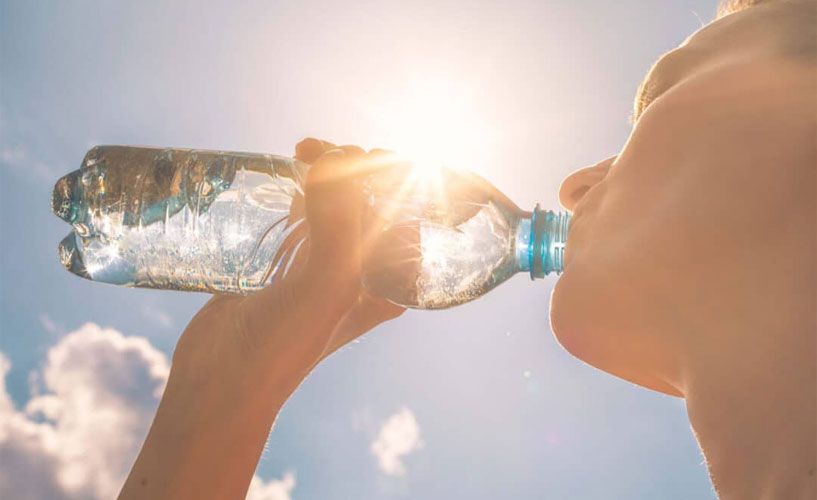Heat-Related Illnesses And How To Avoid Them

Summer temperatures are heating up, and while most enjoy the days at the beach and spending time in the great outdoors, the sun can actually be dangerous if you aren’t prepared. According to the CDC, heat stroke is responsible for the death of over 600 Americans each year. Fortunately, there are warning signs of heat-related illnesses, such as heat exhaustion and heat stroke that you can look out for.
Who’s Most At Risk?
While spending time outdoors in hotter weather, those most at risk for a heat-related illness are the following:
- Infants and children under age 10
- People 65 and older
- People who are overweight
- People who are ill, have chronic health conditions or are on certain medications
It’s also important to note that people and animals left in a hot car can become sick in a matter of minutes. Never leave a loved one or pet in a hot car, even if you’re just going inside for one thing.
Heat Exhaustion
Heat Exhaustion occurs when your body loses too much water and salt through sweating. This can cause a variety of symptoms that you should know to look out for, including:
- Sweating
- Pale, ashen or moist skin
- Muscle cramps (especially for those working or exercising outdoors in high temperatures)
- Fatigue, weakness or exhaustion
- Headache, dizziness or fainting
- Nausea or vomiting
- Rapid heart rate
If you’re with someone who is experiencing some of these symptoms, it’s important to act quickly. Heat Exhaustion can cause a stroke or even death. Move them to a shaded or cool area, give them water or other cool (non-alcoholic) drinks, and provide them wet towels to apply to their face, or even better, have them take a cool shower.
Heat Stroke
The symptoms of this deadly illness include:
- Body temperature above 103 degrees
- Skin that is flushed, dry and hot to the touch; sweating has usually stopped
- Rapid breathing
- Headache, dizziness, confusion or other signs of altered mental status
- Irrational or belligerent behavior
- Convulsions or unresponsiveness
If a loved one is experiencing Heat Stroke, it can be scary. However, it is important to remain calm and get them medical help as soon as possible. Immediately call 911, move them to a cool place and remove any of their unnecessary clothing. Try to cool the victim by placing them in cool water, such as a shower, or covering them in cool towels. Monitor their health and breathing until their temperature is at or below 101 degrees. Be prepared to give them CPR if needed.
It is important to NOT do the following things when treating someone who is having a Heat Stroke:
- DO NOT force the victim to drink liquids
- DO NOT apply rubbing alcohol to the skin
- DO NOT allow victims to take pain relievers or salt tablets
How To Avoid Heat-Related Illnesses
The best ways to avoid Heat Exhaustion and Heat Stroke include staying hydrated, avoiding alcohol, and using the air conditioning in your home to cool off.
Wearing loose clothing and a hat can also protect you from the sun’s harsh summer rays. You should also avoid spending a lot of time outside during the hottest part of the day, which is from 11 am to 3 pm. If you’re sweating a lot, replace your salt loss with a sports drink or fruit juice. Finally, wear sunscreen because a sunburn can affect the way your body cools itself.
Townsen Memorial Hospital Is Here For You
At Townsen Memorial Hospital in Humble, TX, our medical staff is experienced in treating heat-borne illnesses. We’re conveniently located off of 59N and FM 1960 at the corner of 1960 & Townsen Rd. to ensure you can arrive safely and quickly should you need medical attention. With a 24/7 emergency room and a hospital staff trained in all specialties, we’re here for you when you need us. To learn more, visit our website or call 1-877-494-9487.